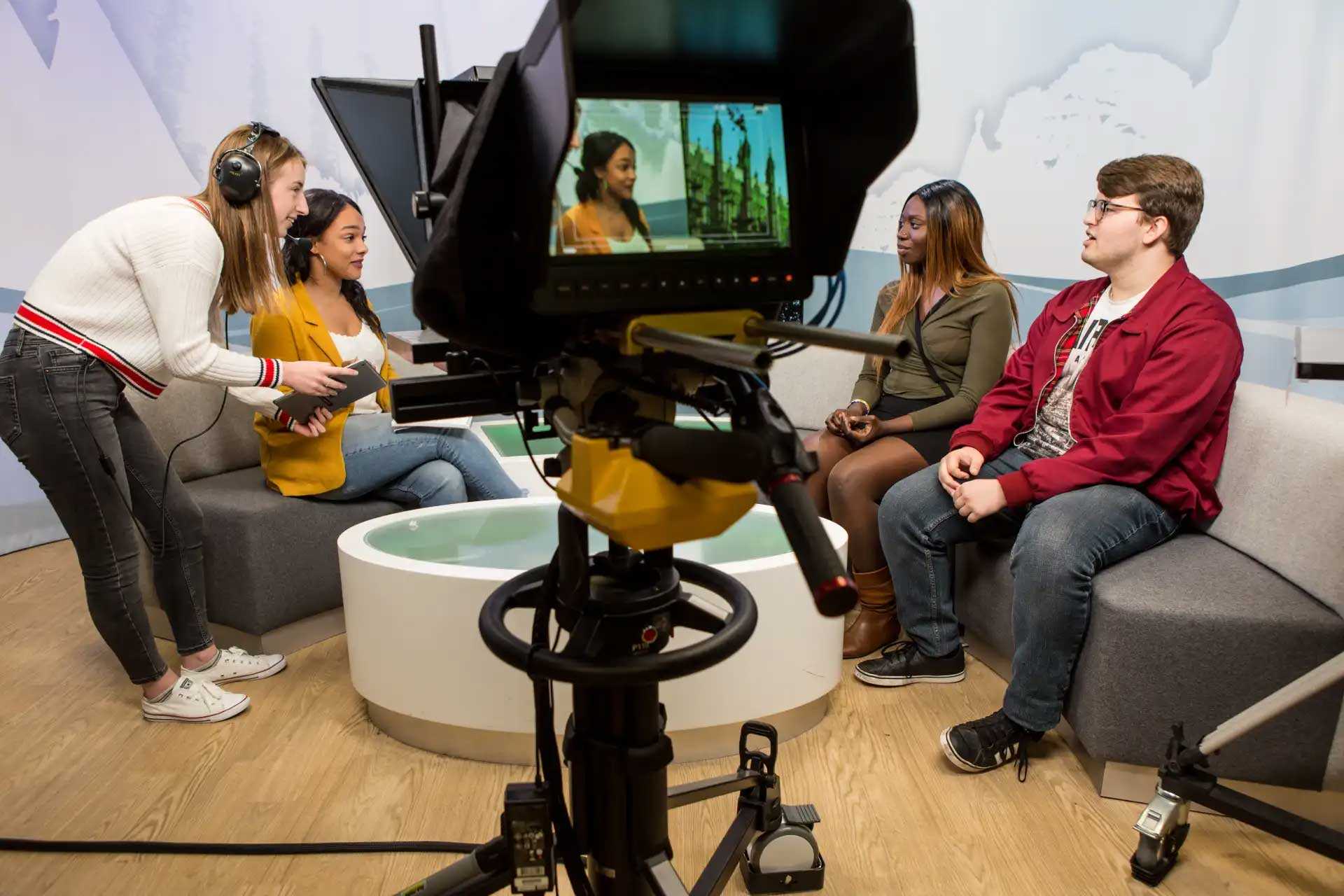Year in Television, University of Kent

Year in Television & Online Broadcasting
Do you want to create eye-catching video for television or online? Take your first step towards a career in content creation with this unique year-long course based at KMTV.
How does it fit into my degree?
This freestanding, self-contained year is open to any undergraduate student at the University at the end of Stage 2 or 3 (that is, between your second and final year, or after your final year).
The course gives you an unrivalled opportunity to spend a year working at KMTV, a commercial Ofcom-licensed television station. It’s a great way to add a year of real work experience to your CV while learning how to make content for TV, online and social media channels alongside experienced professionals.
Your assessments will include building a practical portfolio of content produced individually and as part of a team, which will become your calling card to future employers.
If successful, when you graduate your degree title includes the words with a Year in Television and Online Broadcasting.

What will I learn?
During the year, you will take a work placement module which involves regular shifts in various roles at KMTV, learning how to work in a live studio environment and creating real content for different platforms. You will also complete your own project, which involves creating a programme for the channel. Your tutors will include full-time professional television producers.
No previous experience is required. You’ll have access to the Centre's kit room and will be taught how to use cameras, lights, sound equipment, editing software and how to run a studio as part of the course.
Is it for me?
The Year in Television and Online Broadcasting is suitable for you if...
- you are a current Kent undergraduate
- you are passionate about television and visual storytelling
- you are interested in exploring a career in television
- you want a unique opportunity to gain work experience in a competitive industry
- you are prepared to commit to working shifts as part of a professional team.
Entry requirements
The year is available to any University of Kent undergraduate student (Canterbury or Medway) who has completed Stage 2 or 3 of their degree in any subject.
- For entry between Stage 2 and Stage 3: applicants must have achieved at least an academic average of 50% in Stage 1.
- For entry after Stage 3: applicants must have achieved at least an academic average of 50% in Stage 2.
Curriculum
- Work Placement: Gain approximately 430 hours of work experience at a commercial television and build a strong portfolio of content.
- Television Production: Learn how to create live and pre-recorded video content using industry-standard kit and software.
- Media Ethics and Regulation: Understand the legal and ethical responsibilities of content producers for television and digital audiences.
What we offer
- Teaching in a real television workplace, learning on the job in what is often a hard-to-access industry.
- Excellent contacts with industry at local, national and international levels.
- Networking with visiting professionals
- Modern IT and teaching facilities located amid the beautiful Chatham’s Historic Dockyard.
How do I apply?
To apply, please email lssjugstudenthelp@kent.ac.uk giving your student number.
Application deadlines
- For current stage 3 students - applications close Spring 2025, exact dates TBC
- For current stage 2 students - applications close 31st July 2025
Please note that if you are in your final year, there is an earlier deadline to enable graduation. It is important to apply as soon as possible.
Can I extend my visa to do the Year in Television and Online Broadcasting?
International students wishing to add the Year in Television and Online Broadcasting will be approved on a case-by-case basis in accordance with UK immigration regulations and the University’s Tier 4 policy on Academic Progression and Change of Course. Students also need to be aware that they may need to return to their home country to apply for a new visa to add the year to their degree.